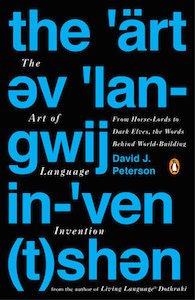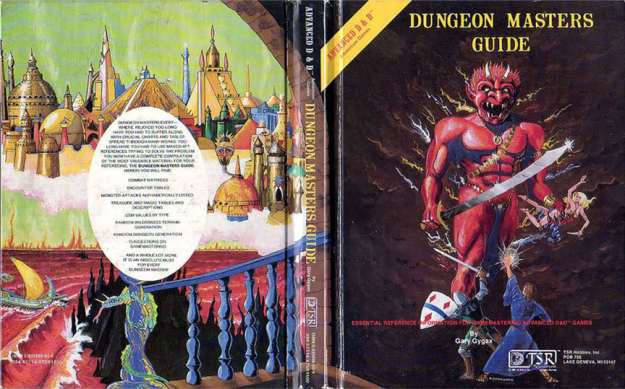Okay, so I said to myself: “I haven’t read contemporary English-language short fiction SF for a while. Wonder what I should look at…”
Then it occurred to me that the TOCs of two year’s best anthologies — The Best Science Fiction & Fantasy of the Year: Volume Twelve by Jonathan Strahan and The Year’s Best Science Fiction: Thirty-Fifth Annual Collection by Gardner Dozois — have been released.
“Maybe Jonathan and Gardner can throw a decent suggestion or two for me,” I reasoned.
Indeed, they were able to do that. Not that my tastes would necessarily converge with those of middle-aged humanoid editors, but a suggestion is a suggestion.
After looking at the tables of contents one can answer a number of question, namely:
Q: Which stories both editors like enough to include them in their anthologies?
There are seven of them:
- An Evening with Severyn Grimes by Rich Larson
from Asimov’s Science Fiction
(July/August 2017, you can e-purchase the issue here)
- The Martian Obelisk by Linda Nagata
from Tor.com
(you can read it here) - The Moon Is Not a Battlefield by Indrapramit Das
from the anthology Infinity Wars
(you can e-purchase it wherever you buy your books)
- My English Name by R. S. Benedict
from Magazine of Fantasy and Science Fiction
(May/June 2017, you can e-purchase the issue here) - A Series of Steaks by Vina Jie-Min Prasad
from Clarkesworld
(you can read it here) - Sidewalks by Maureen McHugh
from Omni
(you can read it here) - Zen and the Art of Starship Maintenance by Tobias Buckell
from the anthology Cosmic Powers
(you can e-purchase it wherever you buy your books)
Three of them are freely available online and the rest will cost you something between five and ten bucks, which is not much and you get other stuff to read as well.
Q: Are all these stories universally loved?
Nope. Of the stories mentioned above, Rocket Stack Rank seems to have given the ones by Larson and Buckell five stars and the story by Das only two. Other are somewhere in between or have not been reviewed yet. Many of the other stories Dozois and Strahan have selected are fall into their “not recommended” or “average” categories.
In his Infinity Wars review, Joe Sherry of Nerds of a Feather, Flock Together, for example, thought that The Moon Is Not a Battlefield is far from being the best story in the anthology, but Strahan and Dozois seem to disagree. The prolific short fiction critic Charles Payseur, on the other hand, has 78 stories in his 2017 recommended reading list, out of which only three (A Series of Steaks by Vina Jie-Min Prasad; Pan-Humanism: Hope and Pragmatics by Jess Barber and Sara Saab; Carnival Nine by Caroline M. Yoachim) are included in either of the anthologies in case I counted correctly.
Nothing is everybody’s cup of space coffee, I guess.
Q: Based on these two anthologies, which seem to be be the most successful short fiction markets of 2017?
Asimov’s and Clarkesworld have seven stories in the anthologies, with one story in both (eight data points). Magazine of Fantasy and Science Fiction and Tor.com have five stories, with one story in both (6 points). The third place is tied as well: anthologies Infinity Wars and Cosmic Powers have three stories in the anthologies, one of which appears in both (4 points). Close behind is Lightspeed with three stories (3 points).
Q: How about the most successful editors?
Sheila Williams and Neil Clarke naturally have most edited stories on the list, due to the prevalence of Asimov’s and Clarkesworld. On the third place we have John Joseph Adams who edited Cosmic Powers (three stories in anthos, one of which in both) and who also runs the magazine Lightspeed (three stories in the anthos). Next up is Magazine of Fantasy and Science Fiction’s C.C. Finlay, and then Jonathan Strahan himself — he edited Infinity Wars anthology plus a Greg Egan story for Tor.com.
Q: Who are the most best-of-anthologized short fiction authors?
Indrapramit Das, Greg Egan, Nancy Kress, Rich Larson, Suzanne Palmer and Alastair Reynolds all have two stories in the anthologies. Das and Larson presumably win this because the other of their stories is included in both. Strahan does not reprint several stories by the same author, but Dozois doesn’t seem to care and has two stories by several authors.
Q: How about gender parity?
There are 67 stories in the anthologies, and because 7 of them are in both, that leaves 60 individual stories. These 60 stories have been written by 57 individual authors (some authors have more than one stories and couple of stories are written by a pair of authors). Of these 57 authors, 25 (by my count) identify as female and 32 as male, so that’s about 44%-56% split.
You can count it multiple ways, of course, but the numbers don’t change much. If you want to calculate how many of the stories were written by females and how many by males (and if you count twice the stories that are in both anthologies), the ratio is 30-to-37, about 45%-55%.
The numbers are different for the separate anthologies, though. In Strahan’s book, the ratio above is very even (14 stories by females, 15 by males) whereas with Dozois’s picks the ratio is 16-to-22.
Q: Shouldn’t you have been reading a couple of stories instead of these silly calculations?
Probably! But now that I did make them, I don’t get the time back, so here they are and now you don’t have to do the same thing in case you want to know the answers to the questions above.
Q: There are other best of anthologies as well, aren’t there?
Sure. I may come back to this listing in case there will also be anthologies edited by Rich Horton (The Year’s Best Science Fiction & Fantasy xxxx), Neil Clarke (The Best Science Fiction of the Year: Volume X) and John Joseph Adams (The Best American Science Fiction and Fantasy xxxx) collecting 2017 stories as there have been in the past.
Speaking of that, I did a similar thing strictly for my own twisted pleasure of the five anthologies which repackaged stories published in 2015. Based on that data, it seems like there’s nothing too far out of the ordinary here. Magazine of Fantasy and Science Fiction seems to be doing a bit better reprint-anthology-wise than two years back at this point, whereas Lightspeed is doing somewhat worse — even though that is perhaps to be expected because Adams and Horton are more likely to reprint Lightspeed material. Asimov’s, Clarkesworld and Lightspeed were the markets whose stories from 2015 got reprinted the most.
Q: Anthologists’ and award voters’ tastes tend to differ a bit, am I right?
Yeah.
Speaking of 2015, there were in total six stories that were reprinted in four of the five best of anthologies, so that’s a pretty impressive consensus on them being very good. They were:
- Botanica Veneris: Thirteen Papercuts by Ida Countess Rathangan by Ian McDonald, published in anthology Old Venus (edited by George R.R. Martin & Gardner Dozois), available online as a reprint on Clarkesworld.
- Calved by Sam J. Miller, published in Asimov’s, available online on Miller’s site.
- Capitalism in the 22nd Century by Geoff Ryman, published in anthology Stories for Chip (edited by Nisi Shawl & Bill Campbell).
- The Game of Smash and Recovery by Kelly Link, published in Strange Horizons, available online.
- Hello Hello by Seanan McGuire, published in anthology Future Visions: Original Science Fiction Inspired by Microsoft which is priced $0.00 in Amazon and various other places.
- Today I Am Paul by Martin L. Shoemaker, published in Clarkesworld, available online.
Only the stories by McDonald and Shoemaker were able to make it to the Hugo longlist (none were finalists but that was a messy year in that respect) and Shoemaker was the only one to appear on the Nebula shortlist. None of these were on the Locus award shortlist. The conclusion one can draw is that the editors’ and the award voters’ tastes do differ, with the caveat that fewer casual short fiction readers probably read new original anthologies (such as Stories for Chip, Old Venus, or Future Visions) and it is therefore less likely for stories published in them to get on people’s nominating ballots.
However, it will be interesting to see what will be the best-of-anthologists’ common favorites this time around and whether they will be seen on award shortlists.
Q: Can you list the other stories that will be included in the two anthologies?
Yes.
2084 (edited by George Sandison)
- Babylon, Dave Hutchison
Analog: Science Fiction and Fact
- The Proving Ground, Alec Nevala-Lee
- Whending My Way Back Home, Bill Johnson
- Nexus, Michael F. Flynn
Asimov’s Science Fiction
- Zigeuner, Harry Turtledove
- Triceratops, Ian McHugh
- Winter Timeshare, Ray Nayler
- An Evening with Severyn Grimes, Rich Larson
- Number 39 Skink, Suzanne Palmer
- The Discrete Charm of the Turing Machine, Greg Egan
- Confessions of a Con Girl, Nick Wolven
Beneath Ceaseless Skies
- Carnival Nine, Caroline M. Yoachim
The Book of Swords (edited by Gardner Dozois)
- The Mocking Tower, Daniel Abraham
- The Smoke of Gold is Glory, Scott Lynch
Boston Review
- Don’t Press Charges and I Won’t Sue, Charlie Jane Anders
Chasing Shadows: Visions of Our Coming Transparent World (edited by by David Brin & Stephen W. Potts)
- Elephant on Table, Bruce Sterling
- Eminence, Karl Schroeder
Clarkesworld
- The Last Boat-builder in Ballyvoloon, Finbarr O’Reilly
- Assassins, Jack Skillingstead and Burt Courtier
- Pan-Humanism: Hope and Pragmatics, Jessica Barber and Sara Saab
- We Who Live in the Heart, Kelly Robson
- Waiting Out the End of the World in Patty’s Place Cafe, Naomi Kritzer
- A Series of Steaks, Vina Jie-Min Prased
- The Secret Life of Bots, Suzanne Palmer
Cosmic Powers: The Saga Anthology of Far-Away Galaxies (edited by John Joseph Adams)
- The Dragon that Flew Out of the Sun, Aliette de Bodard
- Zen and the Art of Starship Maintenance, Tobias Buckell
- The Chameleon’s Gloves, Yoon Ha Lee
The Djinn Falls in Love (edited by Mahvesh Muraad & Jared Shurin)
- Bring Your Own Spoon, Saad Z. Hossain
Extrasolar (edited by Nick Gevers)
- Canoe, Nancy Kress
- The Residue of Fire, Robert Reed
Infinite Stars (edited by Bryan Thomas Schmidt)
- Night Passage, Alastair Reynolds
Infinity Wars (edited by Jonathan Strahan)
- Mines, Eleanor Arnason
- The Moon Is Not a Battlefield, Indrapramit Das
- Dear Sarah, Nancy Kress
Interzone
- The Influence Machine, Sean McMullen
Lightspeed
- The Worldless, Indrapramit Das
- The Faerie Tree, Kathleen Kayembe
- Probably Still the Chosen One, Kelly Barnhill
Magazine of Fantasy and Science Fiction
- The History of the Invasion Told in Five Dogs, Kelly Jennings
- Starlight Express, Michael Swanwick
- My English Name, R.S. Benedict
- There Used to Be Olive Trees, Rich Larson
- The Hermit of Houston, Samuel R. Delany
Omni
- Sidewalks, Maureen McHugh
Sirenia Digest
- Fairy Tale of Wood Street, Caitlín R. Kiernan
Strange Horizons
- Concessions, Khaalidah Muhammad-Ali
Sunvault: Stories of Solarpunk and Eco-Speculation (edited by Phoebe Wagner and Brontë Christopher Wieland)
- The Road to the Sea, Lavie Tidhar
Weight of Words: New Fiction Inspired by Images by Dave McKean (edited by Dave McKean and William Schafer)
- Belladonna Nights, Alastair Reynolds
Tor.com
- Uncanny Valley, Greg Egan
- The Martian Obelisk, Linda Nagata
- The Lamentation of their Women, Kai Ashante Wilson
- Crispin’s Model, Max Gladstone
- Come See the Living Dryad, Theodora Goss
Uncanny
- Though She Be But Little, C.S.E. Cooney
- The Worshipful Society of Glovers, Mary Robinette Kowal
Visions, Ventures, Escape Velocities (edited by Ed Finn, Joey Eschrich, and Juliet Ulman), download the anthology for free
- Vanguard 2.0, Carter Scholz
- Death on Mars, Madeline Ashby
Wired
- The Hunger After You’re Fed, James S.A. Corey
Not published in a magazine or anthology
- Prime Meridian, Silvia Moreno-Garcia
- The Martian Job, Jaine Fenn
So there’s some Jonathan Strahan and Gardner Dozois approved reading. Stories in Clarkesworld, Lightspeed, Tor.com and other webzines (plus the free Visions, Ventures, Escape Velocities anthology) you can go read right now for free. Others you can purchase one way or another, or wait for the anthologies to come out.





